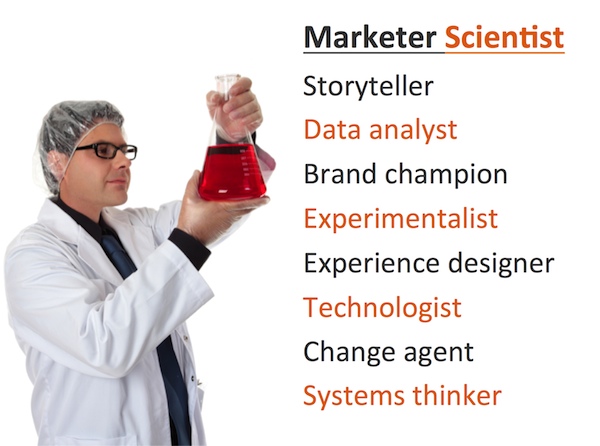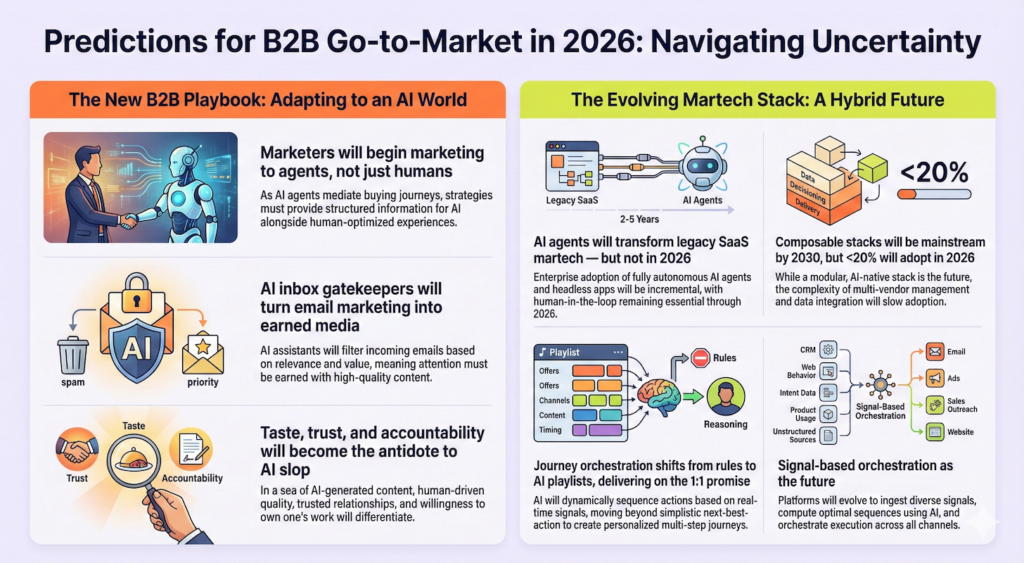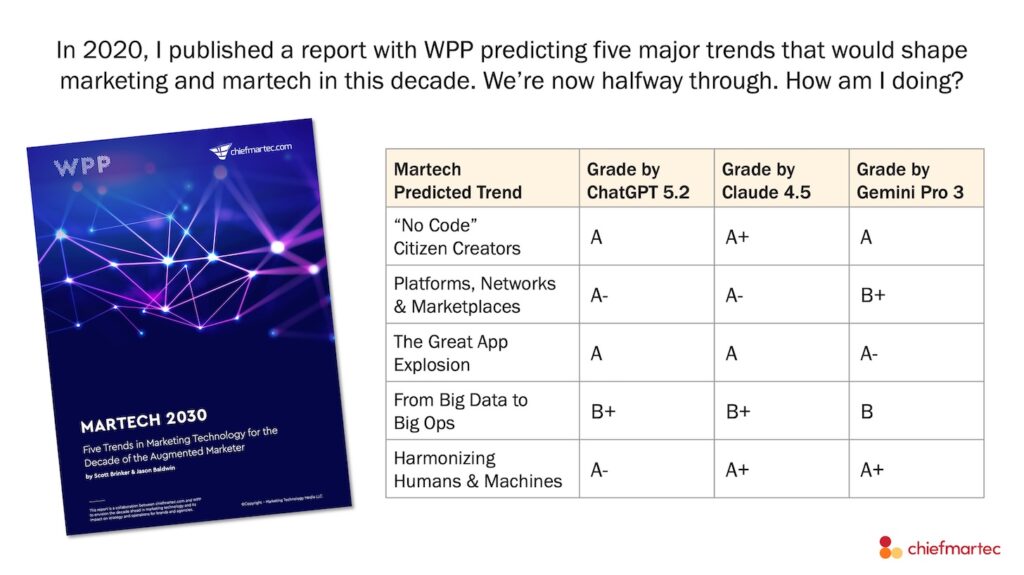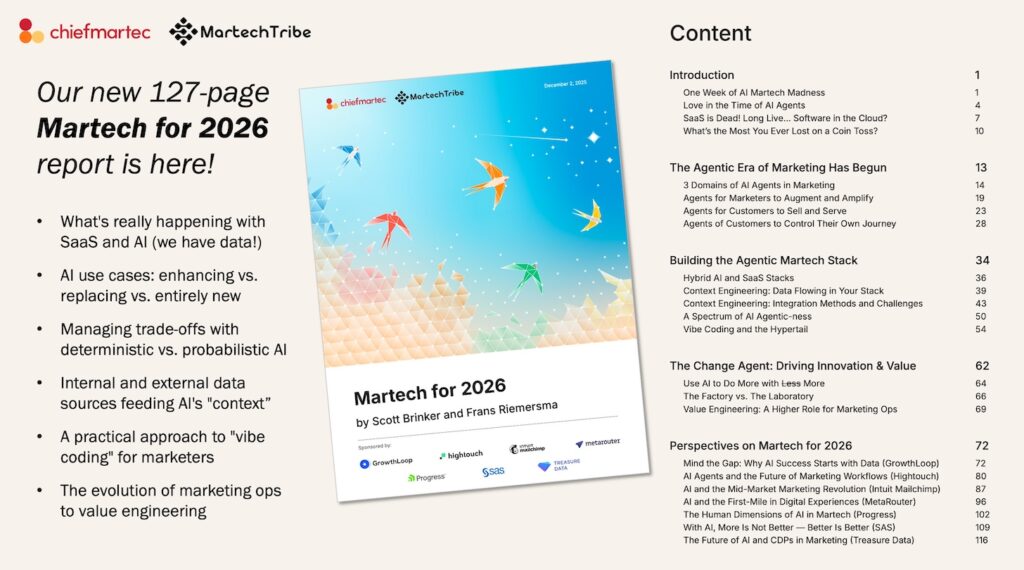(This also appears as a guest post on SAS’s Left of the Date Line blog for the Asia Pacific region.)
Later this month, I’ll have the privilege of meeting with groups of CMOs and other marketing leaders across southeast Asia as part of an event tour with SAS Institute. We’ll be visiting Singapore, Malaysia, Indonesia, the Philippines, and India, as well as doing a live webcast for Australia and New Zealand on Tuesday, May 21.
The title of my presentation will be The Emergent CMO: Combining Art & Science in Modern Marketing, and I thought I’d share a sneak preview of what I’ll be talking about.
In a world where everything is connected, hybrids — people who are able to bridge multiple disciplines — wield tremendous power. They see the interrelationships between things that used to be isolated in silos, and they’re able to creatively combine them in innovative new ways.
For instance, I’ve long championed the hybrid role of marketing technologists — technical professionals who apply their talents in the pursuit of marketing. These aren’t just IT people working indirectly on behalf of marketing. They’re technical professionals who actually identify themselves as marketers. They’re genuinely passionate about marketing. And they’re enthusiastically seeking ways to leverage their technical knowledge in the pursuit of breakthrough marketing ideas.
Of course, not everyone in marketing needs to be a marketing technologist.
However, I have come to believe that everyone in marketing should strive to become a broader kind of hybrid: a marketer scientist. Like a warrior poet or a philosopher king, but for modern marketing.
There’s been a lot of talk lately about the art and science of marketing. Some believe that the explosion of data and technology in our field is pushing out the more creative, intuitive, and human aspects of marketing. This is sometimes framed as “science” replacing “art.” I put those terms in quotes because their interpretation varies depending on who you’re talking to and in what context. Generally, people seem to equate left-brain thinking with science and right-brain thinking with art.
But of course, that’s highly oversimplified. As it turns out, real science is an incredibly creative discipline. Einstein was a great scientist because of his imagination, far more than his math. Vice versa, great art can be highly analytical and systematic in its execution. Beethoven’s 9th Symphony is a work of creative beauty, but also one of great precision.
The art and science of marketing is not a trade-off between two opposing forces. Instead, modern marketing is a synthesis of these two worldviews. Marketing must embrace more science, but that doesn’t mean it should abandon its art. We can be both creative and analytical. The key is to appreciate the strengths of these two worldviews and apply them in concert together.
That is the ideal of a hybrid marketer scientist.
To illustrate this, let’s consider eight characteristics of a marketer scientist — four that emphasize the “marketer” half and four that emphasize the “scientist” half:
The marketer half of this hybrid combines:
- Storyteller
- Brand champion
- Experience designer
- Change agent
Marketers have always been storytellers and brand champions, and those responsibilities are more important than ever. Great storytelling must break through the Internet’s content cacophony, where now everyone is a publisher with an industrial-strength printing press. And in the connected world of social media, every touchpoint with every customer can directly contribute to — or detract from — brand equity in a significant way.
Digital has blurred the line between customer communications and customer experiences. Stories are now best told through experiences, and experiences have become the backbone of the brand. Therefore, marketers must take the lead with experience design. Chief Customer Officer. Chief Experience Officer. These are marketing roles.
Because these changes in marketing are so significant — and they’re happening so rapidly — ultimately a marketer must become a change agent, helping the organization as a whole embrace new opportunities and new approaches.
This is especially true with the scientist half of this hybrid, which combines:
- Data analyst
- Experimentalist
- Technologist
- Systems thinker
Marketers must be fluent with using data to make better decisions and to deliver better customer experiences. In particular, we must be able to harness data the way scientists do: providing inspiration for new ideas and — through controlled experiments — proving which of our theories are correct. The modern marketer must be an experimentalist, comfortable with continually trying new ideas on a small scale, with low risk, and then ramping up the demonstrated winners.
Not everyone needs to be a heavy-duty, code-wielding marketing technologist, that’s true. But in a marketing environment where technology powers just about everything, every marketer should at least be willing to embrace technology as a means to an end. Scientists look to technology as better tools to push the frontier of what science is capable of achieving.
Finally, marketers must integrate these different pieces into a unified worldview as systems thinkers. Any one channel, tactic, approach, etc., cannot be viewed as an isolated component, but rather as part of a greater whole. That’s certainly how customers experience our brands. This will require changes to the way in which we organize marketing — adopting new management methodologies such as agile marketing.
Admittedly, this is a lot under one hat.
Rest assured that not every marketer needs to be an expert in each of these eight characteristics. But every marketer should have a little piece of each of these integrated into their thinking. One marketer might be an expert storyteller, but only modestly proficient as using data to help tell those stories and measure which ones resonate best. Another marketer might be an expert technologist, but mostly embrace the role of brand champion in the context of making sure that their technical implementations fulfill brand promises.
Ultimately, being a marketer scientist is less about a specific set of skills and more of philosophy for modern marketing. Marketer scientists balance the art and science of marketing together in harmony.




Well said Scott. It was a half century ago that David Ogilvy said the most important word in marketing is “test”. 🙂
Something definitely has the ring of wisdom when we rediscover it generation after generation. David Ogilvy would have loved the current digital marketing environment I bet.
Scott, you nailed it again. Thank you. I find that on either side of the equation, my right brain is fully functioning. In fact, it’s the interplay of left and right brains that finds solutions. I’m more on the artist side of the equation, and have been dismayed a bit that more and more I’m finding analysts in CMO roles. It’s understandable. But at the end of the day it’s about surrounding yourself with talent, and to your point, being balanced enough in the CMO position to effectively lead the team.
Thanks, Rick.
I think balance is the true unsung hero in this environment — being both open to new ideas and approaches while maintaining a healthy skepticism and an appreciation of the whole over the parts.
A great post Scott and a topic very close to my heart. I find user stories are a great way to get senior management buy in and help direct investment so they are as much an external facing attribute as well as internal facing.
Just as an aside, I have registered to attend your webcast from Australia next week through the SAS events series. Will you be visiting Australia during your South East Asia tour in person or just the countries you mentioned?
Thanks, Jeffrey.
Regrettably, I won’t be making it to Australia on this trip — but hopefully the next one!
Interesting post Scott! None of us are experts in everything but it really pays and worthy if we know a little bit of everything about marketing!
Great and timely article. Here at Mintigo, we are dealing with ‘marketing scientists’ daily. Some affectionately call themselves ‘marketing nerds’. Our CMO Jason Garoutte had a related blog post recently: http://www.mintigo.com/do-some-marketers-have-science-in-the-bones/
Keep up the great posts. Thanks!
so many quoteworthy things here Scott, hard to pick the best. I liked this one:
“ultimately a marketer must become a change agent, helping the organization as a whole embrace new opportunities and new approaches”.
this is very subtle, because many organizations miss the impact of being able to collect so much data (through various marketing technologies) about their prospects and customers, and what it means to their product design, customer experience, and retention teams. I really think marketers should wield their technologies as weapons of org disruption.
This is a great article, and very true; the myth that scientists are not creative and creatives not scientific, is rightly dispelled here.
This makes digital marketing even more exciting because so many neurons are being challenged daily yet it is about balance as you rightly point out.
Thank you for this insightful article,
Gareth